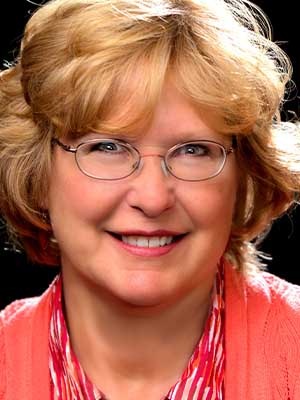
Cochise County taxpayers appear to be on the hook for more than $11,000 in attorney fees racked up by a journalist who sued county officials after they thwarted her efforts to obtain a copy of a February 2019 legal services contract between the county and the Jellison Law Firm based in Carefree.
 Terri Jo Neff is a freelance journalist based in Cochise County. Her work is often featured by Arizona Daily Independent and she has been recognized in the past by the Arizona Press Club.
Terri Jo Neff is a freelance journalist based in Cochise County. Her work is often featured by Arizona Daily Independent and she has been recognized in the past by the Arizona Press Club.
On July 28, a Pima County judge ordered Cochise County to turn over the Jellison contract to Neff, who first requested it under Arizona’s Public Records Law in April 2019. Within hours of the judge’s ruling the four-page document was in the journalist’s hands, at a potential cost to taxpayers of nearly $2,900 per page.
That’s because Neff had to sue multiple Cochise County officials in July 2019 after they refused to release the Jellison contract even though attorney Jim Jellison is being paid by taxpayer funds. Now that Neff prevailed in her lawsuit, her attorney Michael J. Bloom has sent the Cochise County Attorney’s Office a $11,598.43 bill for his work in getting the county to comply with the state’s public records law.
According to Neff, the Jellison contract contains typical information about how much he is being paid by Cochise County (the answer is $225 an hour), what type of work he is to perform, and how billing will be handled. The document is also referred to as an engagement letter or a retainer agreement.
The county’s refusal to release the contract as privileged attorney-client communication has long puzzled Neff, although she suspects it had something to do with the public uproar about the case Jellison was contracted to handle on behalf of the county attorney’s office.
That uproar involves a vote in February 2019 by two of Cochise County’s three board supervisors, Ann English and Peggy Judd, to appoint Pat Call as the justice of the peace at the Sierra Vista Justice Court. There was no public notice that Call, the board’s third member, was being considered for the vacant bench or that he was even interested in the job.

“The audio of that meeting reveals Call opined that waiting was probably not a good thing,” Neff says. “He said that, even though at least two lawyers with experience in the local court were interested in the position.“
At the end of that meeting, Call had the justice of the peace job at double his county salary. Call announced several months ago he would not seek election to his current position this November.
The handling of the justice of the peace appointment was challenged by a Sierra Vista resident and it is now before the Arizona Court of Appeals. Among the issues is whether Call’s actions leading up to his appointment violated Arizona’s conflict of interest statute.
The appellate court is also considering whether English and Judd can be sanctioned for their actions related to the appointment. The two supervisors have been often publicly criticized for those actions and are now facing strong challengers in next week’s primary. They are coming under renewed scrutiny for not authorizing County Attorney Brian McIntyre to release the Jellison contract to Neff when she asked for it 15 months ago.
“I always suspected there were elected officials and key county employees involved in the Pat Call appointment scandal who didn’t want the public to know how much it was going to cost to have Mr. Jellison handle the legal challenge to Call’s appointment,” Neff said.
But what bothered her most, Neff says, is the county’s legal argument of attorney-client privilege. It’s an argument no other public entity made in response to her similar requests for copies of their contracts with various private law firms.
Neff points to the cities of Sierra Vista and Douglas, as well as a water district and a school district in different counties which turned over outside counsel contracts with no delay.
However, it was what she found on the websites for Pima County and the Arizona Attorney General’s Office that left Neff stunned by Cochise County officials who dug in their heels on her request.
“You can actually look right now on Pima County’s website and review dozens of contracts the Pima County Attorney’s Office has entered into with private attorneys,” Neff said. “And there are several similar contracts listed on Attorney General Mark Brnovich’s website.”
That’s why Neff believes Cochise County officials simply hoped she would forget about the Jellison contract after a few weeks. Instead, the journalist found Bloom, whom Neff calls “a bulldog of a defense attorney” who loves public records challenges.
Bloom previously took on the Pima County Sheriff’s Department in a watershed case that led to changes in how the agency handles some public record requests. He filed Neff’s lawsuit in July 2019 then spent much of the last year waiting for each of Cochise County’s six superior court judges to recuse themselves from hearing the case.
Then COVID-19 hit just as the case was assigned to Judge Jeffrey Bergin of the Pima County Superior Court. This week Bergin finally issued his ruling, and he wasn’t buying the Cochise County argument.
Bergin agreed that “privileged” communications between an attorney and client can be withheld from the public, but that label only applies to legal advice and information exchanged in order to provide that advice. Documents related to arranging for legal services “is outside the scope and purpose of the privilege,” he ruled.
“The Court finds that the information contained in the (Jellison) Engagement Letter is exactly the type of bare bones recitation of parties, fees, and general purpose of representation that is not protected by the attorney-client privilege,” Bergin ruled.
If Cochise County accepts Bloom’s billing then the attorney promises to forgo his statutory right to seek another $5,000 under Arizona’s “double damages” law. To qualify for the extra damages he would simply need to prove to Bergin that county officials did not act in good faith or defended a claim primarily for delay or harassment.
“The double damages is an important option in public records cases because it gives an attorney like Michael an extra incentive to take on an entity like Cochise County which has unlimited resources compared to someone like me,” Neff said. “It’s also supposed to be a disincentive to officials who might otherwise act in bad faith, although because those officials don’t pay the bill themselves there’s some doubt whether it works.”
Neff says she is now working on a public record request for documentation of how much money Cochise County has paid Jellison for his work defending the Call appointment. In the meantime, the Arizona Court of Appeals is expected to rule any day on the challenges to Call’s appointment.


